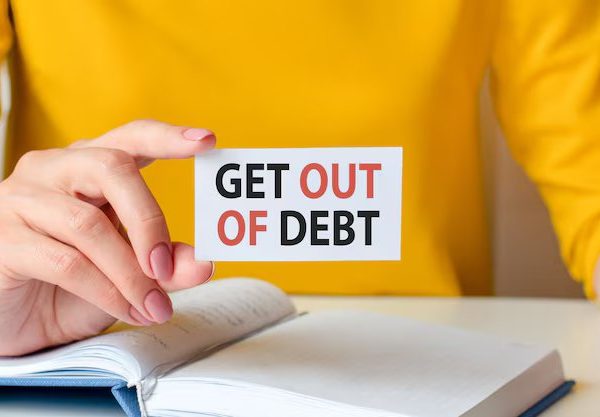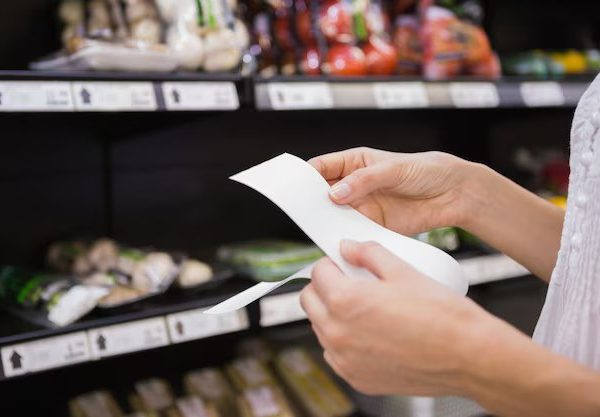How to Get Out of Debt Without Making It Worse
- Home
- How to Get Out of Debt Without Making It Worse
Getting out of debt can feel like an endless battle. You try to make progress, but something always seems to pull you back: unexpected bills, high-interest credit card balances, or just the everyday expenses that never stop. It’s frustrating and easy to feel like you’re stuck in financial trouble. Maybe you’ve already tried cutting back, paying a little extra when you can, or looking into options like debt settlement programs, but the debt just keeps hanging around.
The truth is, getting out of debt isn’t just about working harder or stressing more. It’s about having a plan that actually works for your situation. The goal isn’t to overwhelm you with complicated personal finance terms. Instead, we’ll walk through simple, actionable tips you can follow to get out of debt and finally breathe easier.
If you’re ready to stop spinning in circles and start seeing real progress, you’re in the right place.
Understanding the Basics of Debt Management
Before you start paying off debt, it’s important to understand what you’re dealing with. Debt isn’t just one-size-fits-all. It’s about different types of loans or credit accounts, each with its challenges. The key is picking the approach that works best for your situation.
For example, some people prefer to focus on paying off their smallest debts first to build momentum and feel motivated by quick wins. Others might want to prioritize the debts with the highest interest rates, saving more money over time, even if it takes a bit longer to pay them off.
The important part is finding the method that will keep you moving forward. Understanding your options and choosing the right strategy for you makes a big difference.
50 Practical Ways to Get Out of Debt Without Making It Worse

Getting out of debt doesn’t have to be a one-size-fits-all approach. In fact, there are many strategies that can fit your unique situation, lifestyle, and emotional needs. From tracking spending to building an emergency fund and even asking for a raise, each step is a valuable piece of the puzzle. The key is to stay focused and patient throughout the process, using both practical strategies and emotional awareness to manage your finances better.
1. Track Your Spending
You may not realize where your money is going until you start tracking it. Small, repeated expenses like that daily coffee or frequent takeout can drain your budget. Start by writing down every purchase, even the little ones, and categorize them—food, entertainment, credit card bills, etc. This way, you can quickly spot patterns and areas where you could make adjustments. Once you know exactly how much you’re spending in different areas, you’ll have more power to cut back and allocate more toward your debt, including your monthly debt payments.
2. Create a Budget
A budget is a simple way to organize your income and expenses. It helps you prioritize your spending, making sure you have enough for essential needs and debt payments, including mortgage payments and car loan payments. By sticking to a budget, you can see exactly where your money is going and adjust accordingly to reach your financial goals.
3. Cut Unnecessary Expenses
Identify the things you spend money on that you don’t really need. Cutting back on things like streaming services, dining out, or impulse purchases can save you more than you think. Redirect that extra money toward paying down your debt and watch your progress grow. This can help lower your credit card balances or pay off medical debt.
4. Pay More Than the Minimum
Paying only the minimum on your credit card bills each month feels manageable, but in reality, you’re paying a lot more in interest over time. For example, with a credit card at 20% interest, the minimum payment mostly covers the interest, and the principal hardly budges. If you can, pay at least 20% to 30% more than the minimum each month. Even small increases can shorten the time it takes to pay off your debt and save you money on interest payments.
5. Negotiate Lower Interest Rates
Credit card companies often offer lower interest rates to customers who ask for them. It’s worth calling your credit card issuer and requesting a rate reduction, especially if you have a good payment history. A lower rate can save you money and make it easier to pay off your debt more quickly, reducing your overall debt load.
6. Prioritize High-Interest Debt
Focus on paying off the debts with the highest interest rates first. These debts, like credit card balances or high-interest auto loans, are costing you the most money over time, so eliminating them faster will save you more. Once those are cleared, you can turn your attention to lower-interest debts like a car insurance payment or student loans with a more manageable repayment period.
7. Consolidate Your Debt
A debt consolidation loan lets you combine multiple debts into a single loan, often with a lower interest rate. This simplifies your finances by reducing the number of payments you need to manage—just one payment each month. It can also save you money on interest payments over time, especially if you secure a favorable rate. This could be a good option if you’re dealing with multiple credit accounts or debt collection.
8. Avoid Taking on More Debt

It’s tempting to rely on credit when you’re trying to pay off existing debt, but continuing to borrow more will only make things worse. Commit to not taking on any more debt while you’re paying it off, and be mindful of any new credit applications that might increase your credit utilization ratio. Focus on getting out of the cycle before adding new burdens.
9. Set Realistic Goals
When you set goals for getting out of debt, make sure they’re achievable. Start by paying off smaller debts, like medical debt or credit card balances, and gradually work your way up. Celebrating small victories along the way will help keep you motivated as you tackle bigger balances.
10. Build an Emergency Fund
Building an emergency fund is key to avoiding falling back into debt when life throws a curveball—whether it’s a car repair or an unexpected medical bill. Start small if necessary, but aim to gradually save at least $1,000 as an initial emergency fund. This gives you the peace of mind to handle unplanned expenses without reaching for your credit cards.
11. Automate Your Payments
Automating your bill and debt payments ensures you never miss a payment and avoid late fees. It saves time, helps you stay organized, and frees you from the stress of remembering due dates. You can focus on other priorities, knowing your payments are handled on time.
12. Look for Extra Income
If your current income isn’t enough to cover your bills and debt payments, consider looking for ways to earn extra money. Side gigs, freelance work, or even selling things you no longer need can bring in some extra cash. Put that extra income toward your debt to speed up the process.
13. Sell Unused Items
If your current income isn’t enough, explore ways to bring in additional cash. Side gigs like freelance work, selling unused items, or even part-time jobs can give you extra income that can be used to pay down your debt faster.
14. Consider a Balance Transfer
Many credit cards offer balance transfers with low or 0% interest for an introductory period. If you have high-interest credit card debt, this could be an opportunity to move that balance and save on interest while you work on paying it off. Just be sure to pay off the transferred balance before the introductory period ends to avoid high interest rates.
15. Refinance Your Loans
Refinancing loans, such as personal loans or mortgages, can lower your interest rate and monthly payments. This can be especially helpful if your credit has improved since you took out the loan. Use the extra cash to pay down debt faster or build up your savings.
16. Cut Back on Luxuries
Take a close look at your luxury purchases, like expensive gym memberships, spa visits, or high-end clothing. Reducing or eliminating these indulgences can free up a significant portion of your budget. That extra money can go straight into paying off your debt.
17. Rent Out a Room
If you have extra space in your home, renting out a room can be an excellent way to earn additional income. This money can be directly applied to your debt payments, helping you pay it off faster without taking on another job. Plus, it can help cover your housing costs while you’re working to get ahead.
18. Use Windfalls Wisely
When you receive extra money, like a tax refund, bonus, or gift, don’t spend it on non-essentials. Instead, use that windfall to pay off debt. Applying unexpected funds to your debt can give you a major boost and help you reduce your balance quicker.
19. Use Cash Instead of Credit
Using cash for everyday purchases can help you avoid overspending. It also prevents you from adding more debt to your credit cards. When you see your cash physically leaving your wallet, you’ll be more mindful of how much you’re spending.
20. Seek Debt Management Help
If you’re overwhelmed, a credit counselor or debt management service can offer assistance. They can work with your creditors to create a debt repayment plan, often negotiating lower interest rates or better terms for you. Their guidance can take some of the stress out of managing your debt.
21. Avoid Late Fees
Late fees are a quick way to rack up unnecessary costs on your debt. Whether it’s a missed credit card payment or an overdue utility bill, those extra charges add up over time. Set up automatic payments for your bills or schedule reminders on your phone to help keep track of deadlines. If you ever miss a payment by accident, call the creditor immediately. Some may be willing to waive the fee, especially if you have a good payment history.
22. Look for Deals and Discounts
Save money by taking advantage of sales, coupons, and discounts whenever you can. Whether it’s for groceries, clothing, or services, every little discount can add up over time. Use the savings to pay off debt or save for future needs.
23. Implement the Envelope System
The envelope system is a cash-based budgeting method where you place a set amount of money for each spending category in separate envelopes. This system helps prevent overspending and encourages you to stick to your budget. Once the money in the envelope is gone, you’re done spending in that category.
24. Eliminate Bad Habits
Cutting back on expensive habits like smoking, eating out frequently, or buying costly coffee every day can save you a surprising amount of money. Put those savings directly toward paying off your debt. Eliminating small, unnecessary habits adds up over time.
25. Ask for a Raise
If you’ve been doing well in your job, don’t hesitate to ask for a raise. A higher salary can make a huge difference in your ability to pay off debt faster. Be prepared to show how your performance justifies the increase to improve your chances of success.
26. Set Up a Debt Repayment Calendar
A debt repayment calendar can help you stay organized and track due dates for payments. It’s a great visual tool to keep you focused on your financial goals and prevent you from missing important deadlines. By keeping your payments on track, you can avoid late fees and unnecessary interest charges.
27. Reevaluate Your Subscriptions
Take a look at all your subscriptions, including magazines, apps, and online services. Many people forget about recurring charges for subscriptions they no longer use. Canceling any unused services can save you money that could be better spent on paying down debt.
28. Cut Your Grocery Bill

Grocery shopping doesn’t have to be a financial burden if you plan ahead. Start by creating a shopping list and sticking to it, avoiding impulse buys. Consider buying generic brands, which are often just as good as name-brand products but much cheaper. You can also save by meal prepping for the week ahead, which reduces the number of grocery store trips and the temptation to buy more than you need. The more mindful you are about your food purchases, the more you can save for paying down your debt.
29. Avoid Expensive Lifestyle Upgrades
It’s easy to get caught up in the desire to upgrade your lifestyle, but doing so can quickly put you back in debt. Avoid making big purchases like new cars, expensive vacations, or home renovations until you’ve paid down your debts. Prioritize financial stability before splurging on luxury items.
30. Reduce Your Utility Bills
Cutting back on utilities like electricity, water, and heating can help you lower your monthly expenses. Simple changes like turning off lights when you leave a room or lowering your thermostat can make a difference. Those small savings can add up and be put toward paying off debt.
31. Don’t Ignore Small Debts
It’s tempting to focus on your larger debts, but small debts can quickly pile up too. Tackling small balances first can give you a quick win, which can motivate you to tackle larger amounts. Every debt you clear brings you one step closer to financial freedom.
32. Use a Debt Snowball or Avalanche Method
Choosing between the debt snowball and avalanche methods can make a big difference in how quickly you pay off your debt. Each method has its own advantages depending on your personal preferences and financial goals. While both strategies are designed to help you get out of debt, understanding which one works best for you can make the process smoother and more effective.
Debt Snowball: Focus on paying off the smallest debt first, regardless of interest rates. It helps build momentum and offers quick wins, keeping you motivated as you clear smaller balances.
Debt Avalanche: Pay off the highest-interest debts first. This method can save you more money in the long run by reducing the interest you pay over time, but it may take longer to see noticeable progress.
How to Choose: Consider your emotional needs and financial situation. If you need quick wins to stay motivated, the snowball method might work best. If you’re more focused on saving money on interest, the avalanche method is the way to go. Track your progress and adjust as needed.
33. Consider a Side Hustle
A side hustle can provide extra income that helps you pay off debt faster, and it doesn’t have to be a huge time commitment. There are countless options, from driving for a rideshare service to offering freelance writing or graphic design work. Even tasks like dog walking, tutoring, or reselling items online can boost your income. The key is to find something that fits your schedule and interests, so you can consistently earn extra cash to tackle your debt.
34. Take Advantage of Employer Benefits
Some employers offer benefits that can help you save money, such as discounts on products or services, retirement savings plans, or even assistance with student loan repayments. Take full advantage of these perks to reduce your expenses and free up money for debt repayment.
35. Avoid Using Credit for Everyday Purchases
If you’re used to swiping your credit card for everyday purchases, it’s time to rethink that habit. Using credit cards for regular expenses can add to your debt without you even realizing it. Stick to using cash or debit for purchases to avoid piling on more debt.
36. Refinance High-Interest Debt
Refinancing your high-interest loans to a lower interest rate can save you a significant amount of money. It’s worth shopping around for better loan terms or consolidating your debts to simplify your payments. Refinancing can help you save on interest and reduce the time it takes to pay off your debt.
37. Build a Support System
Having a support system during your debt payoff journey can keep you motivated and on track. Share your goals with a trusted friend, family member, or partner who can help hold you accountable. Sometimes, just having someone to cheer you on makes all the difference.
38. Automate Savings
Set up automatic transfers to a savings account so that you’re consistently putting money aside. Even if you start small, having a habit of saving can help you build an emergency fund or start investing. This reduces the temptation to spend the money, which can eventually go toward your debt.
39. Find Free Entertainment
Entertainment can quickly drain your budget, but there are plenty of free options out there. Instead of going out to expensive restaurants or events, look for free community activities, parks, or online resources. Redirect the money you save to pay down your debt faster.
40. Be Mindful of Impulse Purchases
Impulsive spending is one of the biggest roadblocks to paying off debt. The next time you’re tempted to make an unplanned purchase, take a step back and evaluate whether you really need it. Waiting a few days to think about it can prevent unnecessary spending and keep your budget intact.
41. Utilize Free Financial Tools
There are tons of free resources available to help you manage your finances, including apps and websites. Mint, for example, automatically tracks your spending and categorizes it for you, so you can see exactly where your money is going. Personal Capital allows you to track both your spending and your investments. Using these tools helps you make more informed decisions and gives you a clearer picture of your financial health, which is crucial when paying off debt.
42. Focus on Paying Off One Debt at a Time
While it might be tempting to pay off multiple debts simultaneously, it’s often more effective to focus on one at a time. By concentrating on one debt, you can build momentum and make bigger strides toward financial freedom. Once that debt is paid off, you can move on to the next one with a sense of accomplishment.
43. Reassess Your Insurance Policies
Check to see if you’re overpaying for insurance, whether it’s car, home, or health insurance. Shop around for better rates or consider adjusting your coverage to lower your premiums. The money you save on insurance can be redirected into your debt repayment plan.
44. Stay Motivated with Small Wins
The road to becoming debt-free can feel like a long one, so celebrating the small victories along the way can help you stay motivated. For instance, paying off one credit card or clearing a small loan balance can give you a sense of accomplishment and propel you to keep going. You might even treat yourself to something small when you reach a milestone, like a nice meal or a movie night at home. These small rewards can keep you focused and motivated on your long-term goal.
45. Avoid Emotional Spending
How to Manage Emotional Spending:
Identify triggers that lead to emotional spending (stress, boredom, etc.).
Find alternative coping mechanisms, such as exercise, journaling, or talking to a friend.
Set a budget that includes fun money but limits excessive spending.
Practice mindful spending by evaluating purchases before you make them.
46. Look for Debt Relief Options
If your debt feels overwhelming, research debt relief options, such as credit counseling, debt settlement, or bankruptcy. These options can help you reduce your debt load or find a way to restructure your payments, though they should be considered carefully as they can impact your credit.
47. Use Cash-Only for Large Purchases
When making large purchases, using cash instead of credit can help you stay within your budget and avoid accumulating more debt. By paying with cash, you force yourself to be more mindful of the money you’re spending. This can prevent unnecessary debt from building up.
48. Start Investing in Your Future
Once you’re on the path to getting out of debt, consider putting aside a small portion of your income toward long-term goals like retirement or investing. While paying off debt is your primary focus, starting to invest early can help you build wealth in the future. Even a small amount can make a big difference over time.
49. Be Patient with the Process
How to Stay Patient:
Break down your debt repayment goals into smaller, achievable steps.
Track progress and celebrate small wins along the way.
Stay positive and focused on your long-term goals.
Remember that getting out of debt is a marathon, not a sprint.
50. Celebrate Your Success
Once you’ve successfully paid off your debt, take the time to celebrate your achievement. This is a huge milestone that you’ve worked hard for. Treat yourself to something small but meaningful, and use your success as motivation for the next chapter in your financial journey.
Keep Going – You’re On the Right Path

You didn’t come this far just to stop here. Choosing to tackle your debt is a powerful step. It takes courage, vision, and heart. You’re not just paying off what you owe. You’re creating space for the life you’ve dreamed about. The freedom to breathe easier, say yes to new experiences, and live without the constant weight of financial stress is what you’re moving toward.
“Even the tiniest progress is still progress. Each step is a victory, no matter how small.”
The journey is not a race. What matters is that you keep moving forward. Celebrate your small wins, stay focused on the life you’re building, and remind yourself why you started. A life without debt, one filled with peace, freedom, and possibility, is waiting for you. Keep going. You’re getting closer every day.
